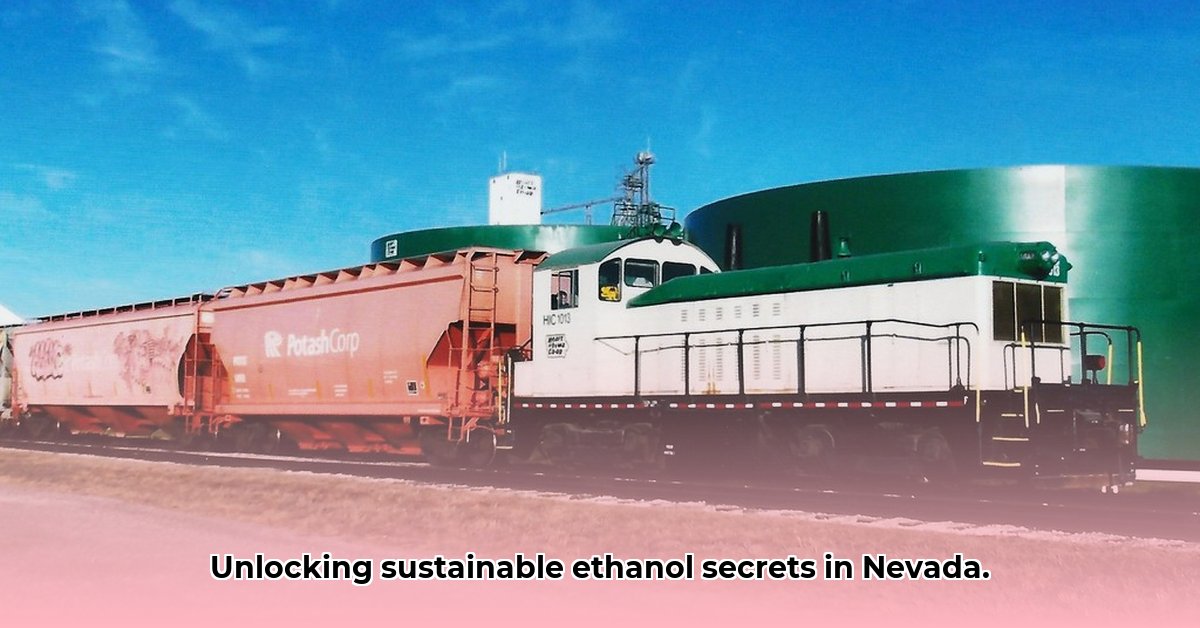
Lincolnway Energy, located in Nevada, Iowa, represents a significant player within the state's thriving ethanol industry. This article examines Lincolnway Energy's operations, the challenges it faces amidst fluctuating corn prices and increasing environmental concerns, and its strategies for achieving sustainable growth within the dynamic ethanol market. We will analyze market dynamics, sustainability initiatives, and risk mitigation strategies, offering actionable insights for stakeholders.
Lincolnway Energy's Operations: Efficiency and Diversification
Lincolnway Energy employs a modern dry-mill process to convert corn into ethanol. However, their operational prowess extends beyond simple ethanol production. The process efficiently generates valuable co-products, including dried distillers grains (DDGs) – a high-protein animal feed – along with corn oil and carbon dioxide. This integrated approach maximizes resource utilization, contributing significantly to profitability and minimizing waste. While specific production capacity and market share figures remain unavailable, their commitment to maximizing output underscores their operational efficiency and strategic approach to resource management. This multifaceted approach transforms Lincolnway Energy from a simple ethanol refinery into a highly integrated biorefinery.
Market Dynamics & Corn Price Volatility: A Constant Challenge
The ethanol industry, including Lincolnway Energy, faces the significant challenge of volatile corn prices. These price fluctuations are influenced by various factors, including global weather patterns, market speculation, and annual harvests. This inherent instability directly impacts profitability, making strategic risk management crucial. Effective strategies, such as hedging future corn prices or diversifying input sources, are critical for mitigating this risk and ensuring operational stability. A multifaceted approach, constantly adapting to market conditions, is likely necessary for long-term success in this volatile market.
Sustainability and Environmental Impact: Balancing Progress and Responsibility
Ethanol production, despite its environmental advantages over gasoline, carries an environmental footprint. Corn cultivation necessitates significant water and fertilizer usage, potentially leading to water resource depletion and nutrient runoff. The entire production process also generates greenhouse gas emissions. Lincolnway Energy, and the broader industry, faces increasing pressure to minimize these environmental impacts. While the specifics of Lincolnway Energy's sustainability initiatives require further investigation, it's evident that the company and the broader industry face the challenge of balancing economic viability with environmental responsibility. This requires a commitment to sustainable agricultural practices and continuous improvement in production processes.
Actionable Insights for Stakeholders: A Multi-Pronged Approach
Lincolnway Energy's continued success requires a multifaceted strategy addressing both immediate challenges and long-term sustainability goals. This strategy necessitates collaboration across various stakeholder groups.
For Lincolnway Energy:
- Strategic Corn Procurement: Utilize market analysis and hedging strategies to minimize the impact of fluctuating corn prices.
- Enhanced Byproduct Marketing: Aggressively market and distribute DDGs and other co-products to maximize revenue streams.
- Operational Efficiency Improvements: Invest in technology and process upgrades to reduce production costs and enhance overall efficiency.
- Diversification into Alternative Feedstocks: Explore opportunities to expand beyond corn-based ethanol, potentially including advanced biofuels.
- Investment in Sustainable Technologies: Invest in research and development to reduce the environmental impact of operations, focusing on water management and carbon capture.
For Iowa Farmers:
- Adoption of Sustainable Practices: Implement precision agriculture techniques to optimize fertilizer use and reduce water consumption.
- Exploration of Alternative Crops: Explore the viability of alternative crops that can be used in ethanol production.
For Iowa Government/Regulators:
- Incentivize Sustainable Practices: Develop and implement incentive programs that support the adoption of sustainable agricultural practices.
- Strengthen Environmental Regulations: Enforce stricter regulations governing water and air quality to ensure environmental protection.
- Support Research & Development: Increase funding for research into advanced biofuels and sustainable agricultural practices.
For Consumers:
- Support Sustainable Products: Make conscious choices to purchase sustainably produced ethanol and support policies that promote sustainable agriculture.
Risk Assessment and Mitigation Strategies: Proactive Management
The ethanol industry inherently carries significant risks. Lincolnway Energy must proactively identify and mitigate these risks to ensure long-term viability. A comprehensive risk assessment is crucial, considering factors like volatile corn prices, competition, environmental regulations, and supply chain disruptions. Mitigation strategies should include diversifying input sources, hedging strategies, robust financial planning, and strong relationships with suppliers. Continuous monitoring and adaptability are key to navigating these risks effectively.
Regulatory Implications: Navigating the Compliance Landscape
Compliance with environmental, food safety, and fuel quality regulations is paramount for Lincolnway Energy's long-term sustainability. Proactive compliance, regular audits, and close monitoring of evolving regulations are essential for mitigating potential legal and reputational risks. Maintaining strong communication with regulators can help ensure a clear understanding of compliance requirements and facilitate the adoption of innovative, sustainable practices.
Conclusion: Embracing the Future of Sustainable Ethanol Production
Lincolnway Energy’s success, and the future of Iowa's ethanol industry, hinges on the ability to balance economic viability with environmental responsibility. Efficient operations, robust risk management, a commitment to sustainable agricultural practices, and proactive regulatory compliance are all essential. Continuous innovation, adaptation to changing market dynamics, and collaborative efforts across all stakeholders will determine the long-term success of Lincolnway Energy and the broader ethanol sector. The journey will undoubtedly present challenges but the opportunities for sustainable growth in this important industry remain significant.